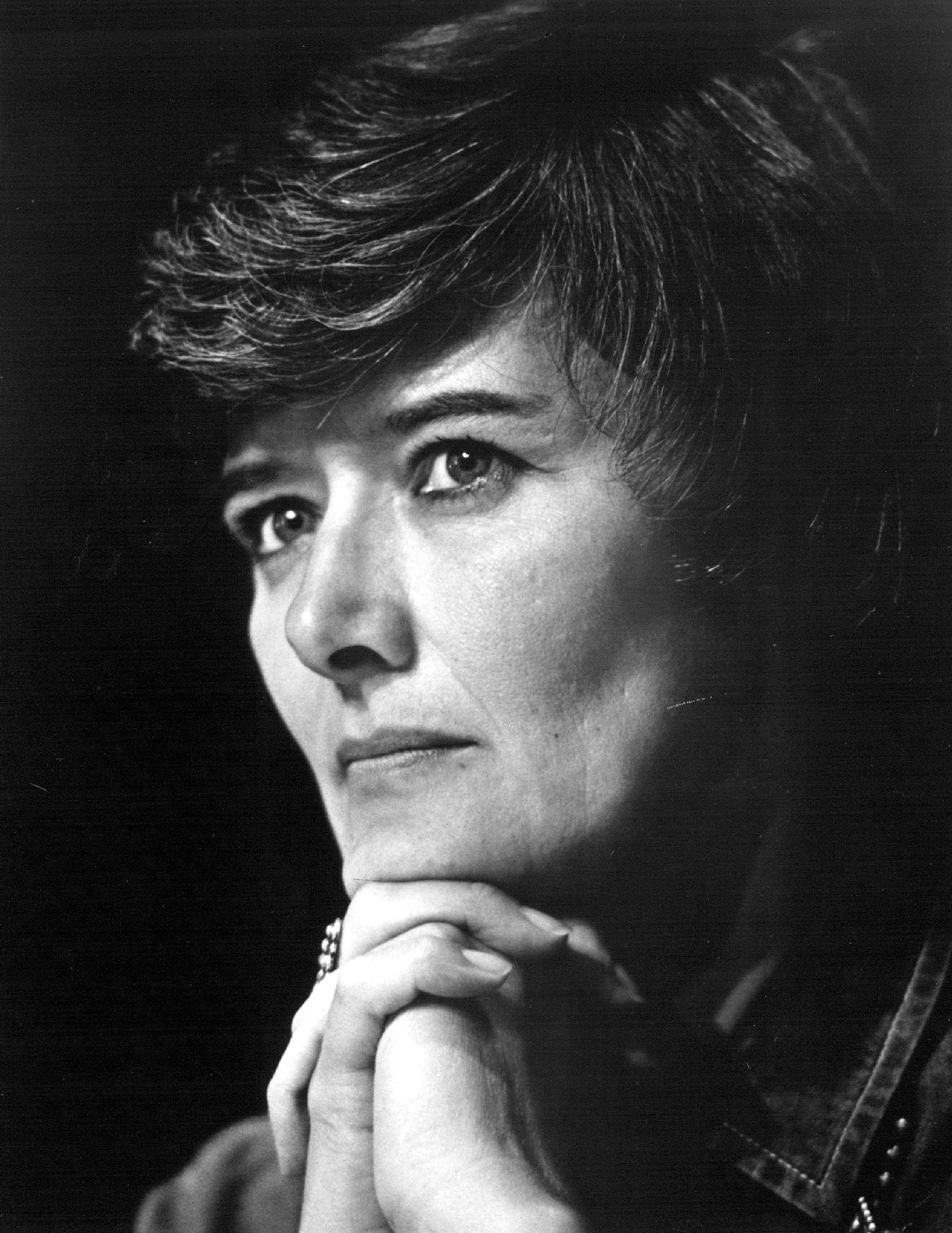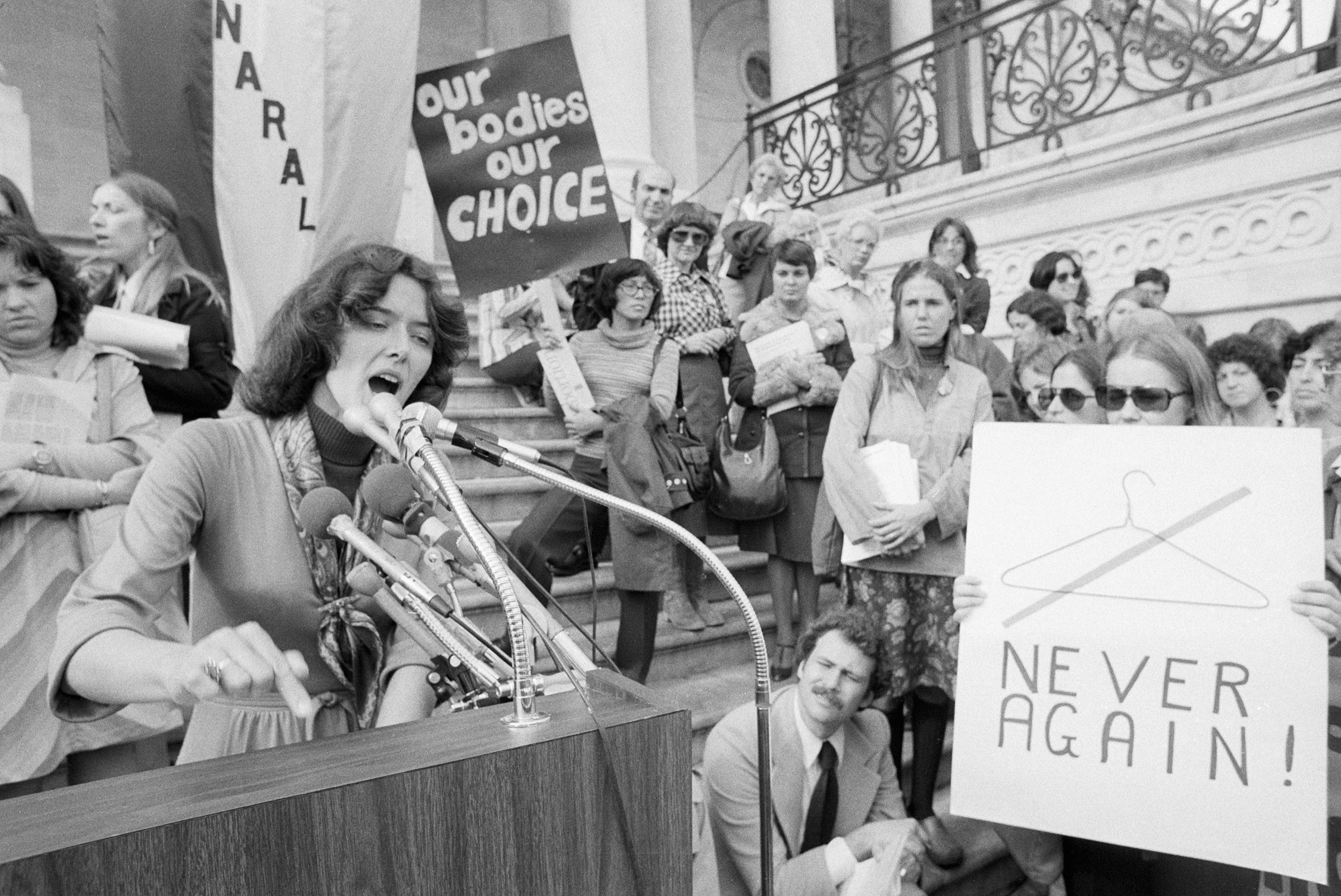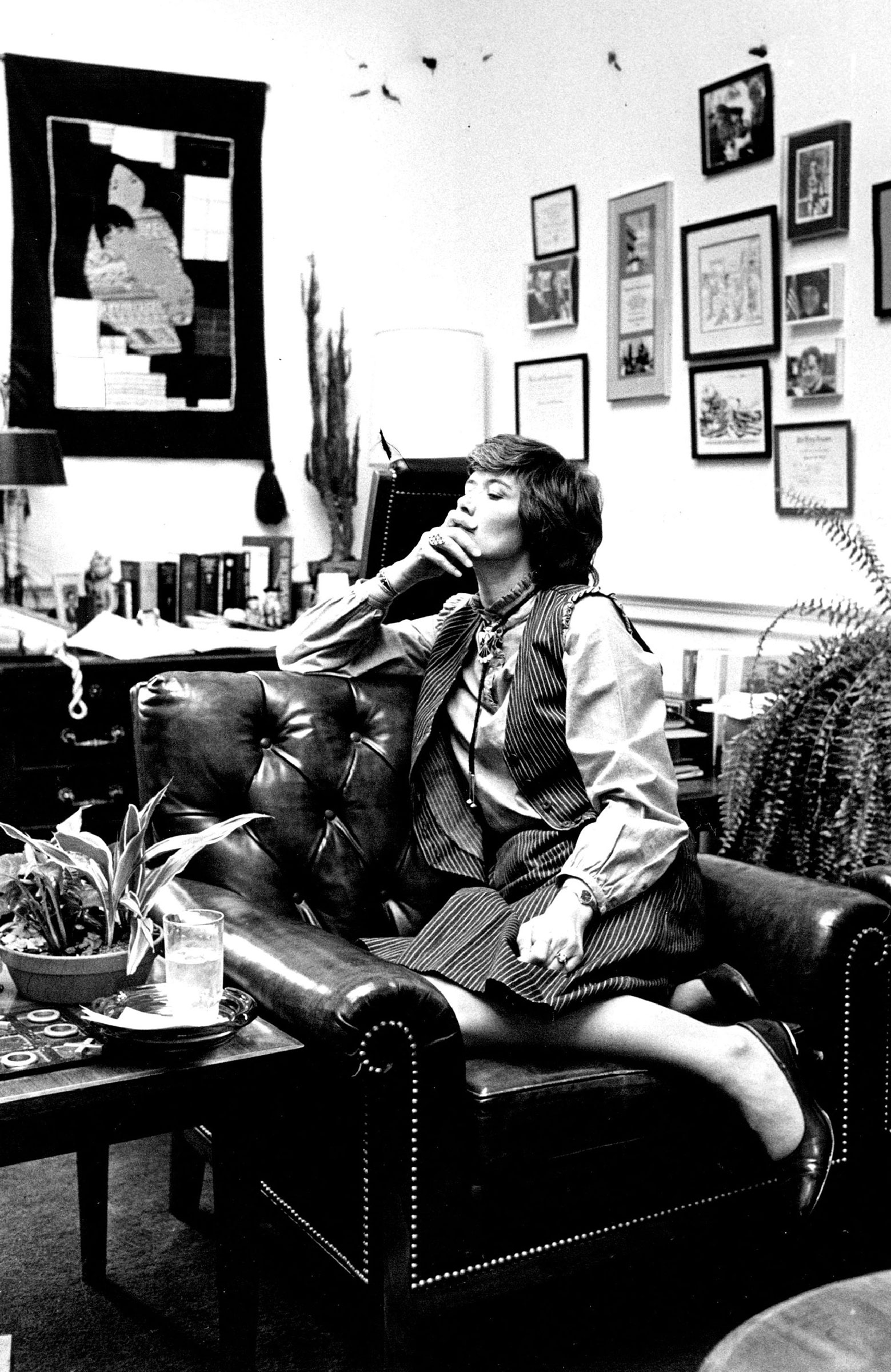
When Clarence Thomas was nominated to the Supreme Court in 1991, Congresswoman Pat Schroeder was immediately alarmed. Schroeder, a liberal Democrat from Colorado, knew Thomas from his prior work as chair of the Equal Employment Opportunity Commission. In testimony before the Post Office and Civil Service subcommittee that Schroeder co-chaired, Thomas had seemed dismissive of the agency’s very mission. “He was totally arrogant, telling us how equal rights was the silliest thing he’d ever heard—even though he was head of the EEOC!” Schroeder recalled when I spoke with her, in 2019.
But the Democrats on the all-male Senate Judiciary Committee, chaired at the time by Sen. Joe Biden of Delaware, didn’t seem to share Schroeder’s alarm. They were fast-tracking Thomas’s nomination and didn’t even plan to hear testimony on allegations Thomas had sexually harassed underlings. And so one day Schroeder and a few of her female colleagues in the House decided to do something about it. They marched over to the other side of the Capitol to demand the Senate hear from Anita Hill, one of Thomas’s accusers.
When they confronted Biden, he was none too pleased with their presumptuousness, Schroeder told me. “Biden said to us, ‘You don’t understand—the only thing you have around here is your word, and I gave my word that this wouldn’t happen,’” she recalled. In the Senate gym, where women had only recently been allowed, Biden had promised a fellow senator, Republican Jack Danforth of Missouri, that he would not hold hearings on the allegations. “This did not please us,” Schroeder told me dryly. “We said, ‘I understand about your word, but we’re not in the gym.’”
Schroeder, who died Monday at 82, told me this story when I interviewed her, nearly four years ago, for my 2020 biography of Nancy Pelosi. Talking with her was one of the highlights of my research. When I was growing up outside Denver, Schroeder, who represented the city in the House for 24 years, was liberals’ great champion in an otherwise red state. In Congress, Schroeder was famed for her barbed tongue and pungent wit. She once told the Pentagon officials testifying before her in a committee hearing that if they were women they’d always be pregnant, because they never said no. When then-Speaker Tip O’Neill wouldn’t stop introducing Schroeder by recounting her husband’s accomplishments, she finally introduced him at a D.C. event as “Millie O’Neill’s husband.” His habit soon changed.
When I reached Schroeder at her home in Celebration, Fla., she lived up to her reputation. Razor-sharp and unsparing, her sarcasm practically crackled across the phone line as she described what things were like for women in Congress in those days.

Schroeder was elected to Congress in 1972, the year of Richard Nixon’s landslide reelection. There were few new Democrats in the House and only 14 women in total, many of whom had replaced their dead husbands. Seeking to learn the ropes of the institution, Schroeder consulted them on how to proceed, but they were less than helpful. “The dean of the House women was from Missouri, and I went to her and said, ‘What should I call you?’” Schroeder recalled. “She said, ‘My name is Mrs. Sullivan.’ And I said, I know that, I was wondering what I should call you. ‘Mrs. John Sullivan,’ she said. ‘I am not just a congresswoman.’” Leonor Sullivan served as secretary of the House Democratic Caucus—the highest leadership position any woman achieved prior to Pelosi. She was the only woman in Congress to vote against the Equal Rights Amendment.
Read More: Pat Schroeder On Women’s Rights and Donald Trump.
Schroeder told me she was a big fan of Pelosi, whom she met in 1984, three years before Pelosi ran for Congress. Then a housewife and political volunteer, Pelosi played a key role in bringing the 1984 Democratic convention to San Francisco. “She came and met with all the congresswomen, and wanted to know what we thought should happen at the convention,” Schroeder recalled. “I was absolutely blown away. That had never happened before. Usually we were asked to go get coffee or something.” (Pelosi, in a statement Tuesday, said, “It was my great personal privilege to serve with Congresswoman Schroeder, whom many of us consider one of the bravest women to ever serve in the halls of Congress.”)
It wasn’t just the lack of women lawmakers that made Congress in those days feel like “an overaged frat house,” as Schroeder once termed it. “There were no women pages, no women police officers, no women parliamentarians, no women doorkeepers,” she told me. “There were just no women at all.” When congressmen socialized with women, it was not, shall we say, as peers. “A lot of lobbyists on the Hill would invite the guys over for drinks,” Schroeder said. “I understand there were women there. I don’t know—they didn’t invite us.” She was often accused of having been elected to Congress under false pretenses by voters who thought “Pat Schroeder” was a man’s name.
The most memorable story Schroeder told me involved her work on the Equal Credit Opportunity Act, which allowed women to get credit cards in their own name, without a male co-signer, for the first time in 1974. (1974!) Several years later, Schroeder was still getting letters from women saying they were being turned down when they applied for credit cards. “We were so proud of ourselves, sitting in the women’s lounge, but everyone was writing to us telling us nothing had changed,” she recalled. “So we got someone from the Fed, which was supposed to implement the legislation, to come over and meet with us. And he said, ‘You just meant for department stores and shopping, right?’” He hadn’t bothered to enforce the law, because he couldn’t see why it was needed. It was a lesson in sexism, but also in the insufficiency of simply making policy to change people’s lives: you need implementation and follow-up, too.

Another time, Schroeder heard from her constituents at Lowry Air Force Base that women officers were expected to socialize at the Officers’ Club, where the entertainment frequently consisted of topless go-go dancers. “I went to the secretary of the Air Force, who was the first woman secretary, and she said the same thing as me: ‘They what?’” Schroeder recalled. “‘I’ll fix that.’ She sent a memo and she sent me a copy, and we thought, that is the end of that in all officers’ clubs on air bases. Six months later, the women tell me it’s still happening. And I get ahold of the secretary, and she calls the officers who were supposed to distribute the memo. And they said, ‘We never sent that out. We thought you were kidding.’”
Men sometimes dismissed Schroeder at their peril. As her Associated Press obituary recounts, an ethics complaint Schroeder and others filed against then-Speaker Newt Gingrich was initially decried as a silly partisan ploy. After it led to a first-ever congressional reprimand of a House Speaker, Gingrich said he regretted not having taken her seriously.
Gingrich’s 1994 Republican revolution ended the congressional majority Democrats had enjoyed for decades and permanently changed the tenor of the institution. But many of Schroeder’s colleagues were in denial at the time. “Most of the Democrats were like, ‘Nah, this is just a fluke, we’ll be back, everyone loves us,’” said Schroeder, who left Congress shortly thereafter, declining to run for re-election in 1996. “I thought, these people don’t understand what’s really happening. It’s not going to be that easy. Obviously, that was, unfortunately, true.”
Read More: Run, Pat, Run!
Pelosi, Schroeder told me, was not one of the in-denial Democrats: “She got it right away,” Schroeder said. “Obama didn’t get it, because he grew up in Hawaii, where everybody has to get along. This isn’t a little island, and these guys are not into getting along.”
After Schroeder and her colleagues demanded it in 1991, the Senate Judiciary Committee did hold a hearing on Anita Hill’s accusations against Clarence Thomas. The all-white-male panel treated Hill contemptuously and did not take testimony from three other women with similar concerns. In 2019, after many years of downplaying his role in the proceedings, Biden finally said he was “sorry for the way she got treated.”
Biden had been campaigning for president for a few months at the time Schroeder and I spoke, and Schroeder, like many progressives at the time, told me she feared his promises of bipartisanship were naive. “Joe has always wanted to please everybody,” Schroeder told me. “Obama did too—it took him a long time to realize he could go to their houses and they’d still turn around and kick him like a soccer ball. I’m all for getting along with people, but at some point you learn. I think Joe still thinks he can charm them.”
More Must-Reads from TIME
- Cybersecurity Experts Are Sounding the Alarm on DOGE
- Meet the 2025 Women of the Year
- The Harsh Truth About Disability Inclusion
- Why Do More Young Adults Have Cancer?
- Colman Domingo Leads With Radical Love
- How to Get Better at Doing Things Alone
- Michelle Zauner Stares Down the Darkness
Write to Molly Ball at molly.ball@time.com